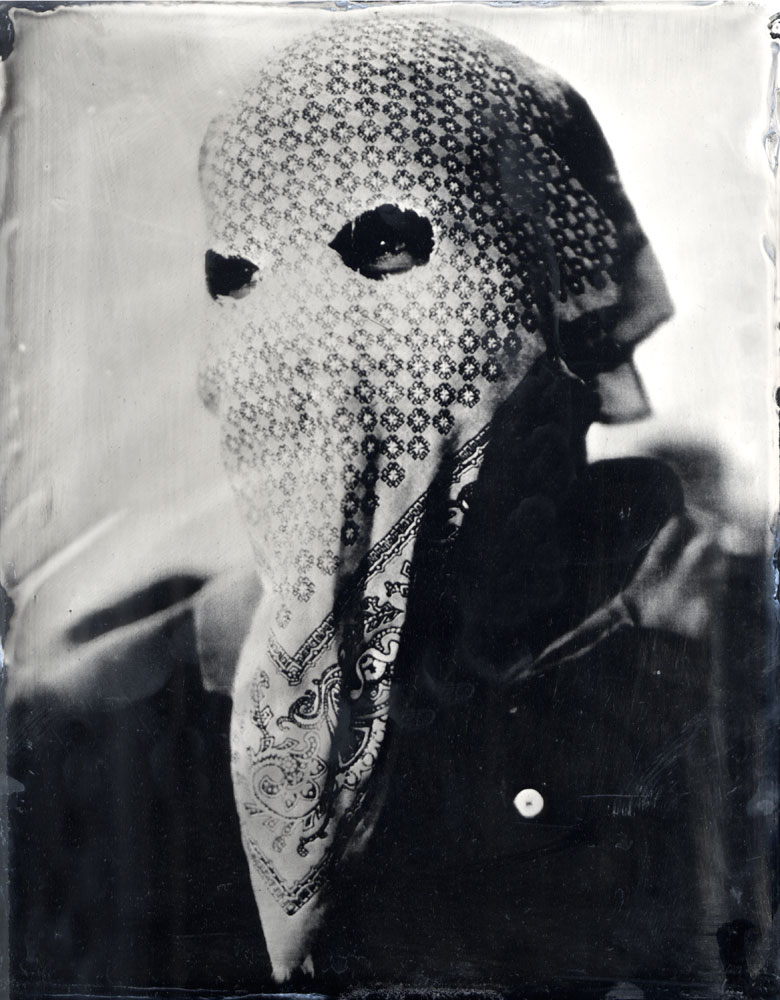
Update, November 2013: For the 17th edition of Paris Photo, opening in the city’s Grand Palais on Nov. 14th, Ross McDonnell produced a unique Ambrotype wet plate edition of his original Auto Defensa portraits along with an accompanying film, below. In this slide show, we’ve updated our original offering of McDonnell’s work with his newest wet plate portraits from the series. For more information about Paris Photo, click here.
In late January I traveled along winding mountain roads in Guerrero state, Mexico, to witness the opening of a new chapter in the country’s enduring battle against organized crime. This was not, however, a drug eradication mission conducted by the Mexican Army, or an operativo by the Federal Police to nab cartel chiefs. Instead, I was there to document a burgeoning movement of “Auto Defensa,” or autonomous uprisings by campesinos who, pushed to the breaking point by criminal gangs operating in their communities, decided to take back control of their towns and villages.
The event generally credited with sparking this movement occurred on January 5th in Ayutla de los Libres, a town of roughly 30,000, when a local representative, or comesario, was kidnapped for ransom.
A group of locals decided to combat the kidnappers. They armed themselves, closed roads into and out of the town, formed patrols and, before long, freed the comesario and took his captors prisoner.
This was the beginning of a levantamiento, or uprising, in Ayutla that takes its historical precedent from the concept of “Uses and Customs” that the Mexican government affords indigenous communities in some parts of the country, allowing them a level of self-governance that includes the formation of community police forces.
This contemporary incarnation of community policing in Ayutla, however, is special. It was not mediating land disputes or arguments over livestock, as its predecessors so often did. Donning masks and wielding shotguns and machetes, these self-deputized protectors were willing to confront — head on — the sort of crime and lawlessness that has turned parts of Mexico into North American killing fields. There have been 60,000 murders in Mexico since 2006, and large tracts of the country are virtually ungovernable.
Incredibly, in Guerrero — as remote and impoverished as it is — drug gangs have operated with near-impunity and in collusion with corrupt security forces. The threat of extortion and kidnapping hangs like a pall over every farmer, stall owner and businessman — most of whom pay protection money to local mobsters. The darker side of this lawlessness, of course, manifests itself in the epidemic of violence, including rape and murder, that has become commonplace.
Residents of La Costa Chica in Guerrero could not leave their houses after dark, and entire villages were paralyzed with fear until the community banded together and kicked both the municipal and federal police out of Ayutla (they have since returned) and began rounding up known delinquents and clearing the streets of criminals.
The Ayutla uprising has been so successful (residents say criminal activity has dropped 90% since early January) that it caused a ripple effect in villages all over La Costa Chica and in other indigenous communities throughout Guerrero. The group from Ayutla and the district of Teconapa (known as UPOEG) have even gained recognition from State Governor Ángel Heladio Aguirre Rivero, who has publicly praised their fight against crime.
The movement is not without its own dark underbelly, however. By mid-January, newspaper reports began appearing detailing the operations of the Policia Communitaria, operating what seemed like a program of social cleansing, arresting criminals and those suspected of crimes and detaining them in makeshift prisons in the Guerrero hinterlands. At the beginning, there were 30 prisoners. Soon as many as 60. It was rough popular justice: the accused were often paraded and shamed before crowds of hundreds.
Critics of the Policia Communitaria suggest they are not merely operating outside the law but are violating human rights and denying accused criminals due legal process.
What will happen to the Auto Defensa movement remains to be seen, of course, but for now spirits are high in the villages of Ayutla, San Marco, El Pericon and many of the other places I visited in the mountains of Guerrero. The people have turned the tables on the criminal gangs and have managed in a couple of weeks to do what the central government has failed to do for years: impose order, if only for a while, on chaos.
Ross McDonnell is a photographer and filmmaker born in Dublin. LightBox has previously featured McDonnell’s work on Irish public housing projects and Enrique Metinides.
More Must-Reads from TIME
- Donald Trump Is TIME's 2024 Person of the Year
- Why We Chose Trump as Person of the Year
- Is Intermittent Fasting Good or Bad for You?
- The 100 Must-Read Books of 2024
- The 20 Best Christmas TV Episodes
- Column: If Optimism Feels Ridiculous Now, Try Hope
- The Future of Climate Action Is Trade Policy
- Merle Bombardieri Is Helping People Make the Baby Decision
Contact us at letters@time.com